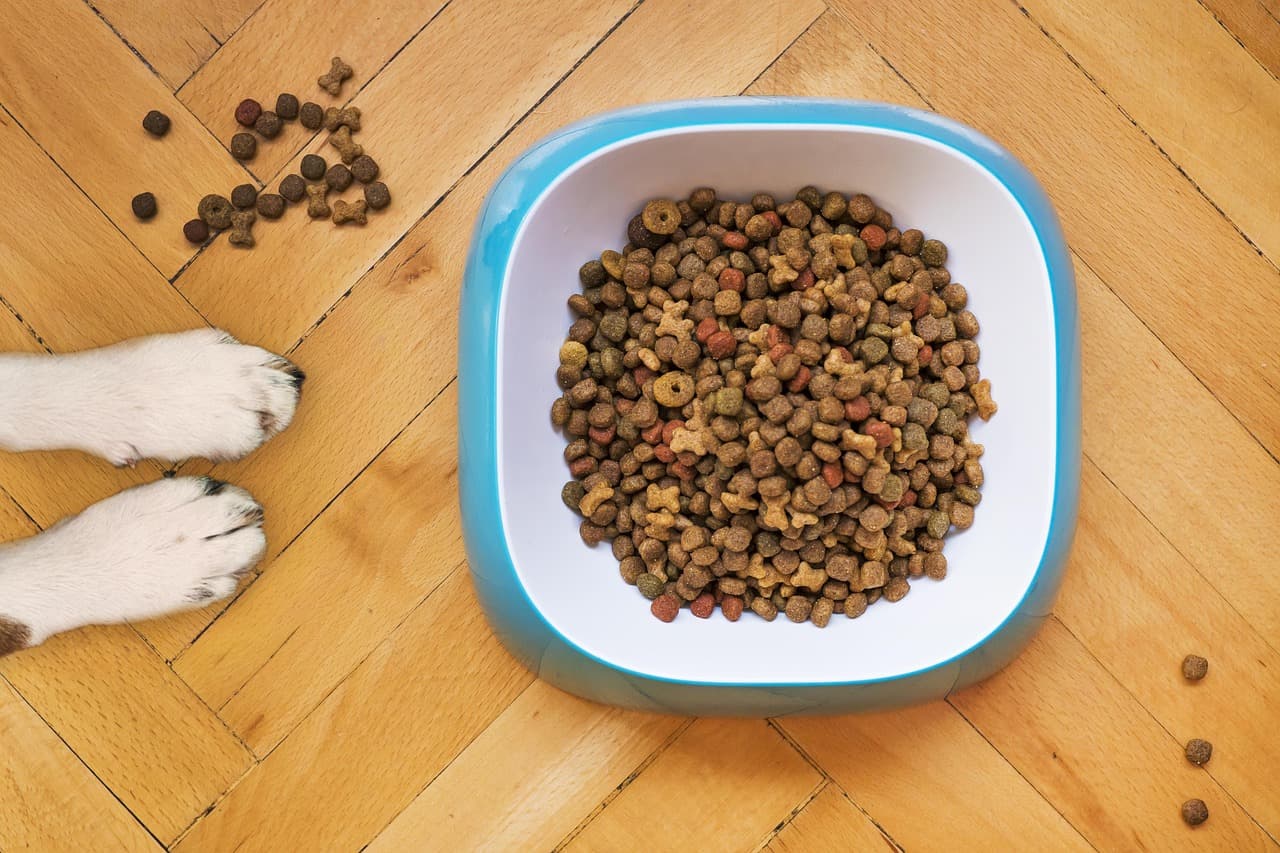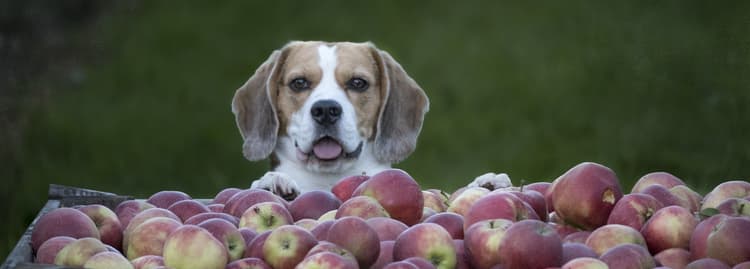Many pet parents wonder, ““Is grain free bad for dogs?” The answer isn’t as straightforward as yes or no. This article breaks down the facts, common myths, and what veterinarians actually recommend.
According to PetMD, true grain allergies in dogs are quite rare. Most food sensitivities in dogs are linked to proteins such as beef, chicken, or dairy—not grains. Still, grain free diets have become increasingly popular, often marketed as healthier or more “natural” options.
However, recent studies and reports have raised concerns about grain free dog food and heart disease. The FDA has investigated a possible link between grain free diets and a heart condition called dilated cardiomyopathy (DCM). DCM affects the heart muscle, making it harder for the heart to pump blood. It can lead to arrhythmias, congestive heart failure, or even sudden death.
Typically, DCM has a genetic basis and is more common in breeds such as Great Danes, Doberman Pinschers, Boxers, Cocker Spaniels, and Golden Retrievers. But what worries veterinarians is that cases of DCM have also appeared in breeds with no genetic predisposition—and many of these dogs were eating grain free diets, often high in legumes like peas, lentils, or chickpeas.
The encouraging news is that some affected dogs showed improvement once their diets were changed back to grain-inclusive, well-balanced foods, especially those formulated with veterinary guidance.
What Is Grain Free Dog Food?

Grains such as rice, oats, wheat, barley, and maize are common carbohydrate sources in dog food. They provide dogs with energy, fiber, and essential nutrients like vitamins and minerals. Despite their benefits, grain free diets for dogs have become increasingly popular in recent years. Many pet parents now choose foods that replace grains with potatoes, peas, lentils, and other legumes.
Public mistrust of grains grew after the 2007 pet food recall, when wheat gluten imported from China was contaminated with melamine. Thousands of pets became sick or died, which fueled fears about grain-based foods. However, it’s important to note that the problem came from contamination, not from the grains themselves.
The rise of grain free diets was also influenced by the human gluten-free movement of the early 2010s. Celebrity endorsements, marketing campaigns, and lifestyle trends further convinced many pet parents that grains were harmful for dogs—similar to how gluten can affect some people. Even some veterinarians began recommending grain free food as a more “natural” option, especially for pets with suspected food sensitivities.
In reality, true grain allergies in dogs are rare. Most food-related issues in dogs are linked to animal proteins, not grains. Avoiding grains without medical need may not only be unnecessary but can also increase the risk of nutrient imbalances and heart disease, including dilated cardiomyopathy (DCM). For most dogs, a balanced diet that includes wholesome grains is both safe and beneficial.
Do Dogs Need Grains?
Many pet parents wonder whether grains are necessary in a dog’s diet. The truth is that dogs are omnivores, not strict carnivores, meaning their digestive systems are designed to process both animal proteins and plant-based foods, including grains. For most dogs, grains are not only safe but also provide valuable nutrients that support overall health.
Below is a breakdown of key nutrients found in grains and why they matter for dogs:
Nutrient | Role in a Dog’s Body | Grain Sources |
Fiber | Aids digestion, keeps bowels regular, supports gut health | Oats, barley, brown rice |
Iron | Helps produce red blood cells and transport oxygen | Whole wheat, brown rice, oatmeal |
Thiamine (B1) | Supports metabolism and nervous system function | Rice, barley, whole wheat |
Riboflavin (B2) | Converts food into energy, supports eye and skin health | Barley, cornmeal, oats |
Niacin (B3) | Aids digestion, converts food into energy, supports skin health | Corn, wheat, rice |
Folate (B9) | Essential for cell growth and development | Whole grains, wheat germ, brown rice |
Magnesium | Supports muscle function and bone strength | Quinoa, brown rice, barley |
Carbohydrates | Provide a primary energy source for active and working dogs | Most grains (rice, oats, corn) |
Pet owners should know that dogs are omnivores, not strict carnivores. Their digestive systems are designed to handle both animal proteins and plant-based ingredients, including grains. Most dogs can safely digest grains such as rice, oats, and barley, which provide important nutrients like fiber, vitamins, and essential fatty acids. Unless a dog has a confirmed grain allergy or sensitivity—which is relatively uncommon—there is generally no health reason to remove grains from their diet. Including moderate amounts of grains can actually contribute to a balanced, nutritious diet for most dogs.
Is Grain Free Good for Dogs?
Grain free diets should generally only be considered if your dog has a confirmed grain allergy or a sensitivity to gluten, which is relatively uncommon. Dr. Jerry Klein, Chief Veterinary Officer of the American Kennel Club (AKC), notes that grain free diets are rarely necessary for most dogs. He explains that the majority of canine food allergies are related to proteins—most commonly beef, chicken, or dairy—rather than grains.
If your dog shows signs of allergies, it’s important to work closely with your veterinarian to identify the cause. In many cases, vets may recommend a hydrolyzed protein diet or a prescription food specifically formulated to manage sensitivities, rather than relying on boutique or over-the-counter grain free options.
Is Grain Free Bad for Dogs?

Many pet owners wonder whether grain free diets could be harmful. To answer this, we can look at the FDA’s investigation into a potential link between grain free diets and a heart condition called dilated cardiomyopathy (DCM).
FDA investigation and heart disease (DCM) link
Should dog food be grain free? In July 2018, the FDA announced they were investigating reports of DCM in dogs eating certain diets, including grain free foods. An update in 2022 clarified that more research is needed to fully understand the connection. Importantly, the FDA has never stated that grain free diets directly cause DCM. Instead, their investigation focused on diets labeled “grain free” and those containing ingredients such as potatoes, sweet potatoes, legumes, and peas.
The FDA investigation did not result in any recalls or bans, but it highlighted a potential dietary connection to heart conditions in some breeds. For example, breeds like the Doberman Pinscher, Great Dane, and Irish Wolfhound appeared more frequently in reports of DCM. Additionally, the update noted that taurine deficiency—a nutrient linked to heart health—was associated with DCM in some Cocker Spaniels.
Here is a list of dog breeds the FDA’s 2022 update mentioned as having a potential increased risk of DCM:
Herding Dogs
Australian Cattle Dog
Border Collie
Old English Sheepdog
Rough-haired Collie
Hound Group
Afghan Hound
Beagle
Gordon Setter
Irish Setter
Saluki
Whippet
Rhodesian Ridgeback
Working Dogs
Portuguese Water Dog
Rottweiler
Samoyed
Schnauzer
Standard Long-haired Dachshund
Vizsla
Terrier Group
Bull Terrier
Irish Soft-Coated Wheaten Terrier
Jack Russel Terrier
Staffordshire Bull Terrier
Yorkshire Terrier
Boston Terrier
Toy Dogs
Chihuahua
Maltese
Miniature Schnauzer
Pomeranian
Pug
French Bulldog
Sporting Dogs
Belgian Tervueren
English Cocker Spaniel
English Springer Spaniel
Flat-coated Retriever
Taurine deficiency concerns
Another reason the answer to the question “Is grain free good for dogs?” is generally no relates to its potential link to taurine deficiency. Taurine is an amino acid essential for the proper functioning and contraction of the heart muscles. Without sufficient taurine, the heart muscle can weaken, leading to thinning of the walls and enlargement of the heart chambers—key features of dilated cardiomyopathy (DCM).
Some canine diets, particularly those low in meat protein and many grain free formulas, may not provide enough of the amino acids cysteine and methionine, which are needed for the body to produce taurine. While most dogs can synthesize taurine naturally, certain breeds and larger dogs may require taurine supplementation to maintain heart health.
Nutrient gaps and digestive risks
One of the main grain free dog food issues is nutritional gaps. Grains in dog food are not merely fillers—they provide important nutrients such as iron, magnesium, folate, B vitamins, and fiber, all of which support energy levels, digestive health, and gut function. Grain free diets often replace grains with ingredients like legumes or potatoes, which typically contain less fiber and may contribute to gas, bloating, or irregular stools in some dogs.
Higher fat/calories and weight gain risk
Grain free dog foods frequently rely on ingredients such as peas, potatoes, lentils, or tapioca to replace grains. These alternatives are often more calorie-dense, which can make weight management more challenging, especially for older, less active, or sedentary dogs. Additionally, many grain free formulas are lower in fiber, reducing feelings of fullness and potentially causing overeating and weight gain.
Is Grain Free Dog Food Better Than Grain Inclusive?
There is no one-size-fits-all answer when choosing between grain free and grain-inclusive diets for dogs. Some dogs may thrive on grain free formulas, while others do better with grains in their meals. The most reliable approach is to work closely with a veterinarian or pet nutritionist, who can recommend a diet tailored to your dog’s overall health, activity level, age, and genetic predispositions.
Equally important is learning how to read pet food labels carefully. Marketing claims such as “grain free” or “all-natural” can be misleading, so it’s essential to look beyond the buzzwords and focus on the actual nutrient content.
Above all, what matters most is whether a food meets the AAFCO (Association of American Feed Control Officials) nutritional adequacy standards. These guidelines ensure that a pet food provides complete and balanced nutrition for growth, maintenance, and long-term health, regardless of whether it is grain free or grain-inclusive.
Grain Free Dog Food Myth vs Reality
Myth | Fact |
Grain free dog food helps with allergies | Grain allergies are rare in dogs. Most canine allergies are caused by animal proteins. Unless a grain allergy is specifically diagnosed, grain free diets do not provide an allergy advantage. |
Grain free dog food is of higher quality | “Grain free” is largely a marketing term. It does not guarantee better nutrition or higher quality. |
Grains are unnecessary fillers in dog food | Grains are not just fillers—they provide fiber, B vitamins, iron, magnesium, and folate. These nutrients support digestive and gut health, skin health, energy, and immune function. |
Grain free diets are healthier for all dogs | There is no scientific evidence supporting this claim. In fact, preliminary research has suggested a potential link between some grain free diets and heart-related issues such as dilated cardiomyopathy (DCM). |
Grain free dog food is better for weight control | Grain free diets often include starches and fats. Many grain replacements are more calorie-dense than grains, which can increase the risk of weight gain in older, sedentary, or less active dogs. |
Dogs are carnivores and don’t need grains | Dogs are omnivores. They require both animal proteins and plant-based ingredients like grains, which supply important nutrients. |
All dogs benefit from grain free foods | Many dogs thrive on grain-inclusive diets. Grain free diets should only be considered under veterinary guidance, particularly because of the potential link to heart disease or DCM. |
Do Vets Recommend Grain Free Dog Food?
Veterinarians typically recommend grain free diets only if a dog has a confirmed grain or gluten allergy, or a medical condition that makes them sensitive to grains. Rather than purchasing over-the-counter grain free dog food, it’s important to research options based on AAFCO guidelines. Many prescription and therapeutic diets are more rigorously tested than standard grain free formulas. Working closely with your vet can help determine if a specialized diet is the safest and most effective choice for your pet.
Final Thoughts: Should You Feed Grain Free Dog Food?
We hope this guide has helped answer the question, “Is grain free bad for dogs?” and provided you with tools to make the best choice for your dog’s health. There is no one-size-fits-all answer—what works for one dog may not work for another. Use this quick checklist to guide your decision:
Has your dog been diagnosed with a grain allergy? If yes, a grain free diet may be appropriate.
Is your dog showing signs of heart disease, digestive upset, or weight gain? These could indicate issues with their current food.
Have you consulted your veterinarian? Professional guidance is essential to ensure your dog’s diet meets their unique needs.
Ultimately, the goal isn’t simply to choose between “grain free” or “grain-inclusive.” The priority is selecting a complete and balanced diet that supports your dog’s long-term health.
Frequently Asked Questions
What are the pros and cons of grain free dog food?
Grain free dog food may benefit dogs with true grain allergies or sensitivities, though these cases are rare. On the downside, many grain free diets are linked to nutrient imbalances and potential health risks, including dilated cardiomyopathy (DCM). For most dogs, grain free diets are unnecessary and could even be harmful.
Is grain free dog food bad for Labs?
Grain free diets are generally not recommended for Labradors. This breed is not prone to grain allergies and may face increased risks of heart problems, such as DCM, on grain free diets.








